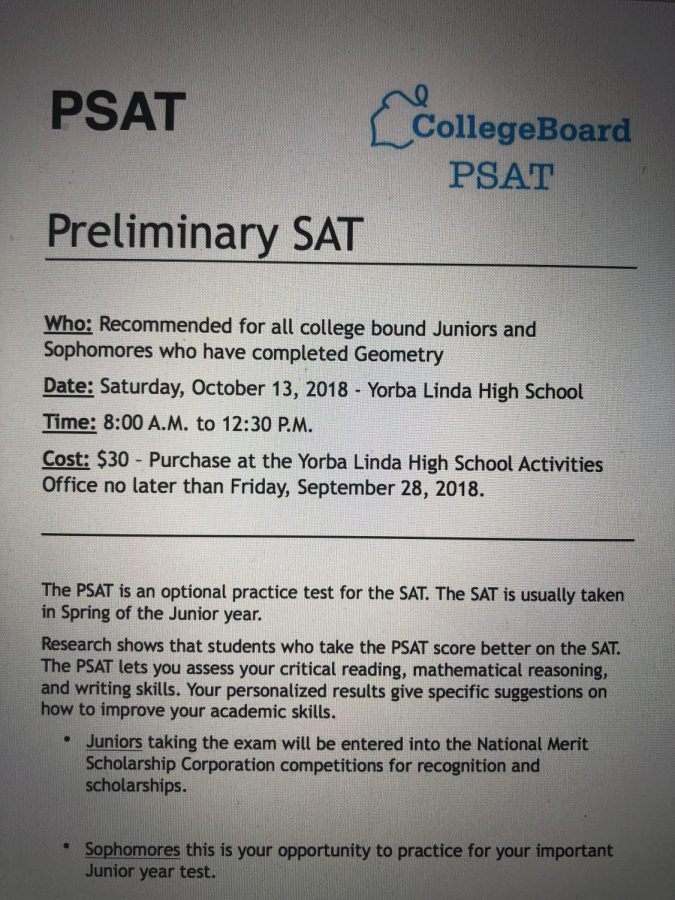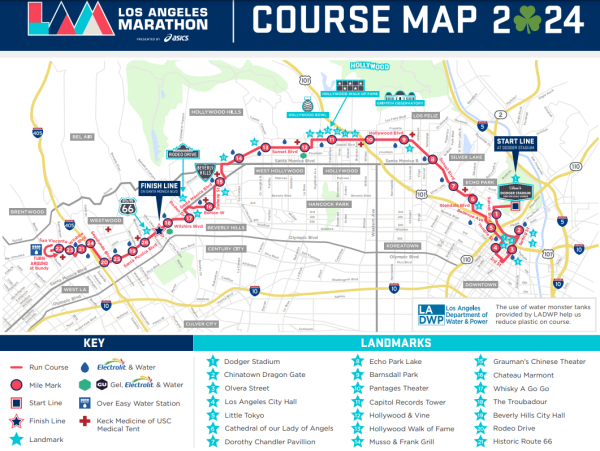SAT vs. ACT: What’s Right for You?
YLHS is holding a date to take the PSAT. It is a great opportunity to see if one likes the style of the SAT.
September 21, 2018
As the summer ends and the new school year begins, many students are focused on furthering their education and looking towards their future. Many teens have their eyes set on attending a university, which means taking on the daunting process of college applications and standardized testing. For many schools, high SAT or ACT scores will increase the student’s chances of being accepted into their desired school. One thing that will help students achieve the best score possible is knowing which exam to take, the SAT or the ACT.
Both the SAT and ACT are widely used exams for college applications in the United States. Both exams contain very similar content, testing students’ skills in areas such as reading comprehension and problem solving. While the two tests share several similarities, there are several key differences to consider when deciding which exam is best suited for each individual.
According to the Princeton Review the SAT is a test best suited for “analytical thinkers who enjoy problem solving” (Princeton Review). Visual learners will excel at the SAT as it includes analyzing charts, tables, and graphs. In addition, students with advanced math skills may favor the SAT as the math section accounts for 50% of the final score. The SAT also allows students more time to work, thus students who do not work as quickly may want to consider taking the SAT over the ACT.
In contrast the ACT is favored by “students who are strong readers who work well under time pressure” (Princeton Review). Almost the entire exam, including the science section, are based heavily in reading comprehension and being able to pull out specific information from the passages provided. Another strong element to consider is the fact that the math portion only accounts for one fourth of the final score. For students who dislike math and find it more difficult, the ACT is most likely the better option. Jayden Hawley (11), for example, states, “I’m not a big math person, but I like science so I feel like the ACT is the test for me.” Students who are able to work at a fast pace and read quickly may also decide that the ACT is the best fit for them.
Both the SAT and ACT also include an optional written portion as part of their exam. For students who plan on taking this essay portion, which many colleges require, they must also consider the difference in the prompts of the two tests. The SAT requires the writer to read a persuasive essay and then dissect the argument using evidence. In contrast, the ACT gives a passage and asks the writer to discuss several different perspectives on the subject as well as give a personal opinion on the issue. The two require different skills, with SAT being more based on reading comprehension, while the ACT requires comparing and contrasting skills on different perspectives.
While weighing the pros and cons of each test can help decide which exam is a better fit, taking practice tests on both is the best way of deciding the preference of an individual. Jade Low (11) discussed how she decided when she said “I took a practice SAT and a practice ACT to see which one would be better for me. I scored around the same for both. But I knew the ACT had a science section and I did not want to have to study and practice another topic before I took the ACT.” Taking into consideration the various differences between the exams and knowing the individual’s strengths will be extremely helpful in deciding which test will result in the best scores.






















